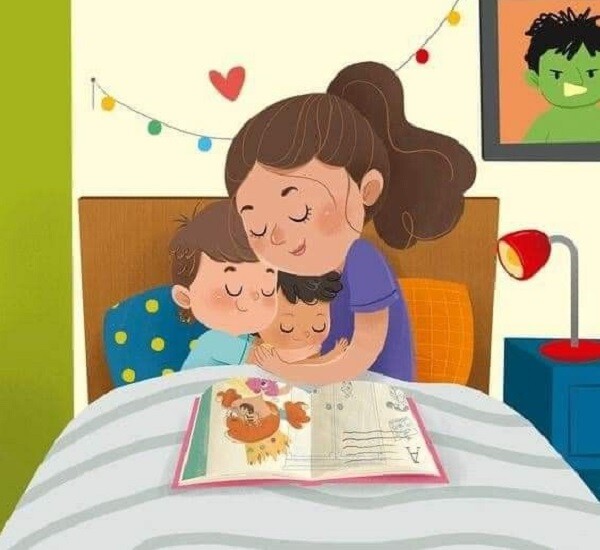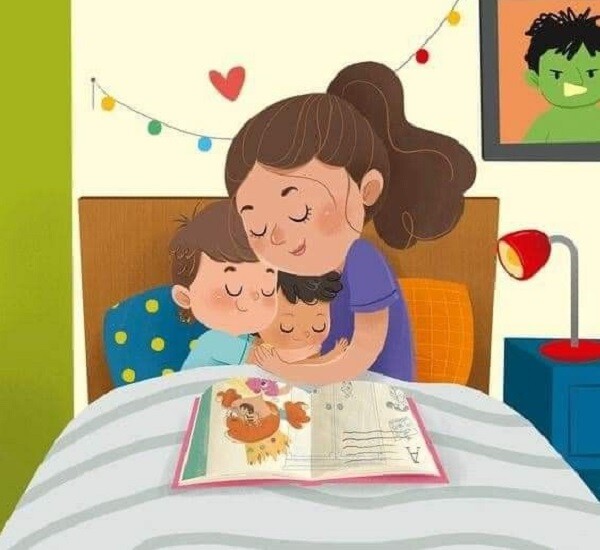
Staying up late can make it difficult for children to fall asleep.

What are the dangers of children going to bed late?
Impacts the immune system
High-quality sleep aids in the child’s recovery. During sleep, the child’s body rests, produces growth hormones, strengthens the immune system, and enhances memory. Deep sleep enables the brain to process information, retain learned knowledge, and prepare for the next day’s activities.
However, if children go to bed late and, consequently, do not get enough sleep, their bodies will not have sufficient time to recover. This directly impacts their immune system. Over time, their immunity weakens, reducing their ability to fight off illnesses. Later on, children may become more susceptible to common ailments, particularly respiratory issues such as colds, flu, or asthma.
During the autumn and winter months, when the weather turns cold and dry, this issue warrants serious consideration. Cold air combined with changing weather conditions can increase the risk of respiratory illnesses. If children do not get sufficient and quality sleep, their ability to ward off diseases decreases significantly.

Lack of sleep can lead to fatigue in children.
Affects growth and development
A significant amount of growth hormone is released during sleep, which is essential for a child’s height development.
In reality, growth hormone is typically released between 11 PM and 2 AM, making this the peak period for children’s growth.
If children consistently go to bed late and do not rest after 11 PM, it will impact the release of the growth hormone.
Impacts memory and learning abilities
School-aged children who go to bed late and sleep early have very different academic outcomes.
Children who get enough sleep will have better memory retention, as their memory also rests while they sleep.
On the other hand, if children experience prolonged periods of poor sleep, their memory will deteriorate, making it difficult to focus, which can significantly impact their academic performance.
Impacts emotions
Adults become irritable when they do not sleep well, and the same is true for children who have not yet developed adequate emotional control.
Going to bed late can affect a child’s mood. When children do not get enough rest, they may become irritable, easily throw things, and lose their temper over minor issues.
When a child’s emotions are affected, other aspects of their life suffer as well. They may struggle to focus on their studies, leading to decreased academic performance. Lack of sleep can make it harder for children to acquire new knowledge, remember information, and complete homework. This can create a vicious cycle: children do not perform well academically, feel disappointed, and continue to experience sleep difficulties, further worsening their mood.
Moreover, a child’s emotions can also impact their social relationships. When children feel tired and irritable, they may become less approachable and unwilling to play with friends or engage in group activities. This can easily lead to loneliness and a sense of abandonment.

What time is considered late for a child to go to bed?
Nowadays, many parents have the habit of staying up late, and children inadvertently follow this pattern.
Each child’s biological clock and sleep needs are unique. Generally, the ideal time for children to fall asleep is between 9 PM and 10 PM every night (after this frame is considered late). During this period, children easily enter deep sleep, which does not interfere with the release of growth hormones.

Parents should encourage children to sleep before 10 PM.
Of course, not all children need to sleep during this time, and parents can decide based on their circumstances.
Sleep timing can be adjusted according to the child’s biological clock. If the child wakes up in the morning full of energy and all growth and development indicators are normal, it means that their sleep timing and quality meet their needs.
On the other hand, if the child wakes up feeling tired, has difficulty concentrating, or is slow in growth and development, parents should consider adjusting their sleep schedule.

How to improve children’s sleep habits?
3 ways to improve children’s sleep habits.
Establish a consistent study and rest schedule
From an early age, parents should help children develop a habit of going to bed and waking up at a fixed time.
Good study and rest habits should be established early on to promote a child’s healthy development and early adaptation to a regular sleep schedule.
Create a comfortable sleeping environment
A quiet, comfortable, and cozy sleeping environment can improve the quality of a child’s sleep.
Ensure the bedroom temperature is suitable, the lighting is soft, and the bed is comfortable. Only the supporting devices that make the child feel comfortable can help them fall asleep faster.

Parents can read books or listen to music with their children before bedtime.
Avoid overstimulation before bedtime
Spending time with children before they go to sleep is beneficial, but avoid anything too exciting.
If children are overly stimulated before bedtime, their brains will remain excited, and falling asleep will be challenging. It is best for parents to engage in calming activities with their children before sleep, such as reading books, having conversations, or listening to music.






































